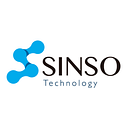Data democratization aims to distribute the rights to access, use, and control data resources to a wider audience, allowing individuals and organizations equal participation in data production, sharing, and governance. Traditionally, data has been concentrated among a few entities, leading to information asymmetry and social inequality. Data democratization breaks this concentration, making data resources more accessible and fostering social justice and equality. To enhance data governance transparency, providing effective tools and solutions for the data democratization process is essential.
The emerging lightweight data-oriented DAO governance is built on blockchain technology. Placing data at its core, it offers transparent, secure, and reliable governance for participants in the data ecosystem. This architecture allows participants to engage in decision-making and governance based on their contributions to the data ecosystem. Voting rights are obtained through holding tokens or providing data analysis algorithms, and the decision outcomes are determined based on the weight of their voting rights. This ensures fairness and democracy in the governance process while reducing the risks of centralization and unfair competition. Additionally, AI can be empowered to manage the process based on certain framework rules. Since the construction of AI systems heavily relies on data, the data DAO solution is also a powerful tool for data cleaning and extracting high-value sample data in the process of forming a closed-loop business. The AI system itself can enhance the precision of its outputs through the design of incentive models.
To address these application scenarios, SINSO provides a decentralized data-oriented storage caching network, which currently consists of over 5000 storage nodes globally. Through network consensus algorithms and decentralized nodes, it reduces single-point failures and tampering risks, thereby enhancing the resilience and stability of the entire data ecosystem. Using CID-based data access, it seamlessly integrates with persistent storage combinations and data programmable frameworks like FVM. Leveraging the EVM specification, we can establish our own data DAO paradigm on the SINSO Amstar chain.
DAPPs can effortlessly interact with data through SINSO Getway, the primary interface to SINSO’s storage network. With no further need to build a cache, data can be persistently stored on Filecoin, Crust, or BNB Greenfield networks. Imagine SINSO providing a decentralized network similar to RPC nodes, tailored for data-oriented applications, enabling DAPPs to retain full control over data and build data-oriented DAOs.
Furthermore, SINSO’s Amstar chain offers efficient and cost-effective gas usage for data-related DAO applications, such as NFT trading and creator economy scenes. The increasing number of data assets results from collective human efforts, often owned by consensus communities. SINSO handles data generated by SocialFi and specific group task objectives, such as NFT minting scenarios involving multiple participants. NFTs, along with associated resources and data files, undergo ownership verification and community-based governance.
SINSO is developing a versatile data-oriented DAO governance framework, SINSO DAC. Users can extend their DAO applications without starting from scratch by utilizing ready-made templates, simplifying the process and avoiding duplication. Ensuring consistency in data governance has been a challenge, as a fully centralized approach will contradict DAO principles. And on the other hand, putting data into an insecure and unverifiable storage architecture would lead to a loss of data control. Thanks to the integration of SINSO’s proprietary storage network and DAO framework (providing an all-in-one solution), we don’t need to worry about consistency issues between DAO governance, data persistent storage, and cross-chain scenarios. We can solely focus on implementing business logic.
For security, the lightweight data-oriented DAO architecture employs encryption algorithms and multi-signature technology. Participation of decentralized nodes and network consensus algorithms reduces the risks of single-point failures and tampering, enhancing the resilience and stability of the entire data ecosystem.
SINSO is committed to building the infrastructure for Web 3.0, aiming to simplify DAPP’s use of decentralized storage and achieve data DAO governance. Leveraging SINSO’s products, enterprises can seamlessly migrate their business data to the Web 3.0 ecosystem. SINSO Getway, as a distributed high-speed caching network, rapidly stores valuable data in distributed storage systems like BNB Greenfield, Filecoin, Arweave, and Crust. Despite the ever-changing nature of distributed storage networks, SINSO remains steadfast and plays a crucial role in driving the flourishing development of the distributed storage track.
Contact Us
Website: sinso.io
Twitter: https://twitter.com/sinsonetwork
Telegram: https://t.me/sinsonetwork
Discord: https://discord.com/invite/m8eqcHJ5ur
